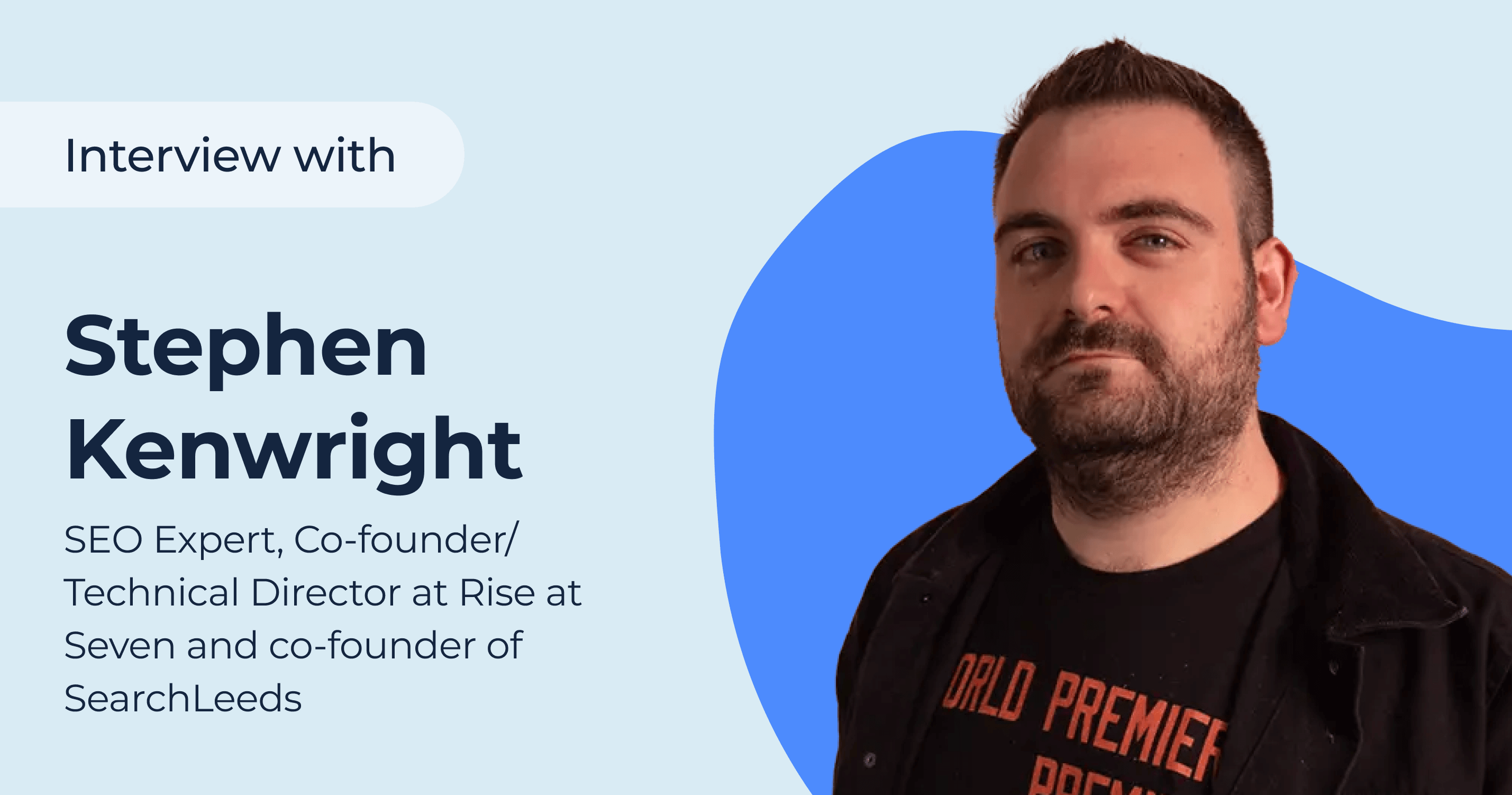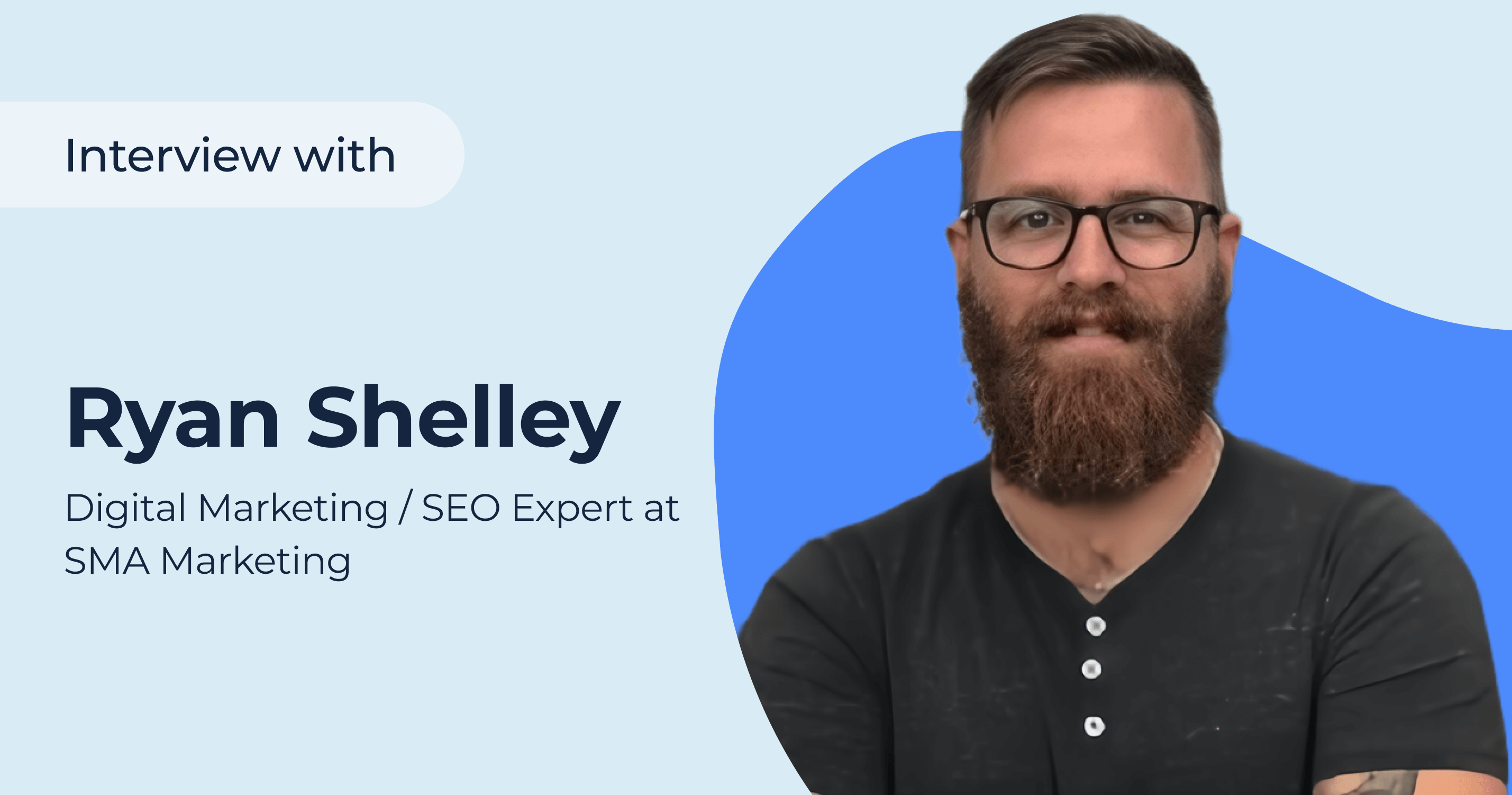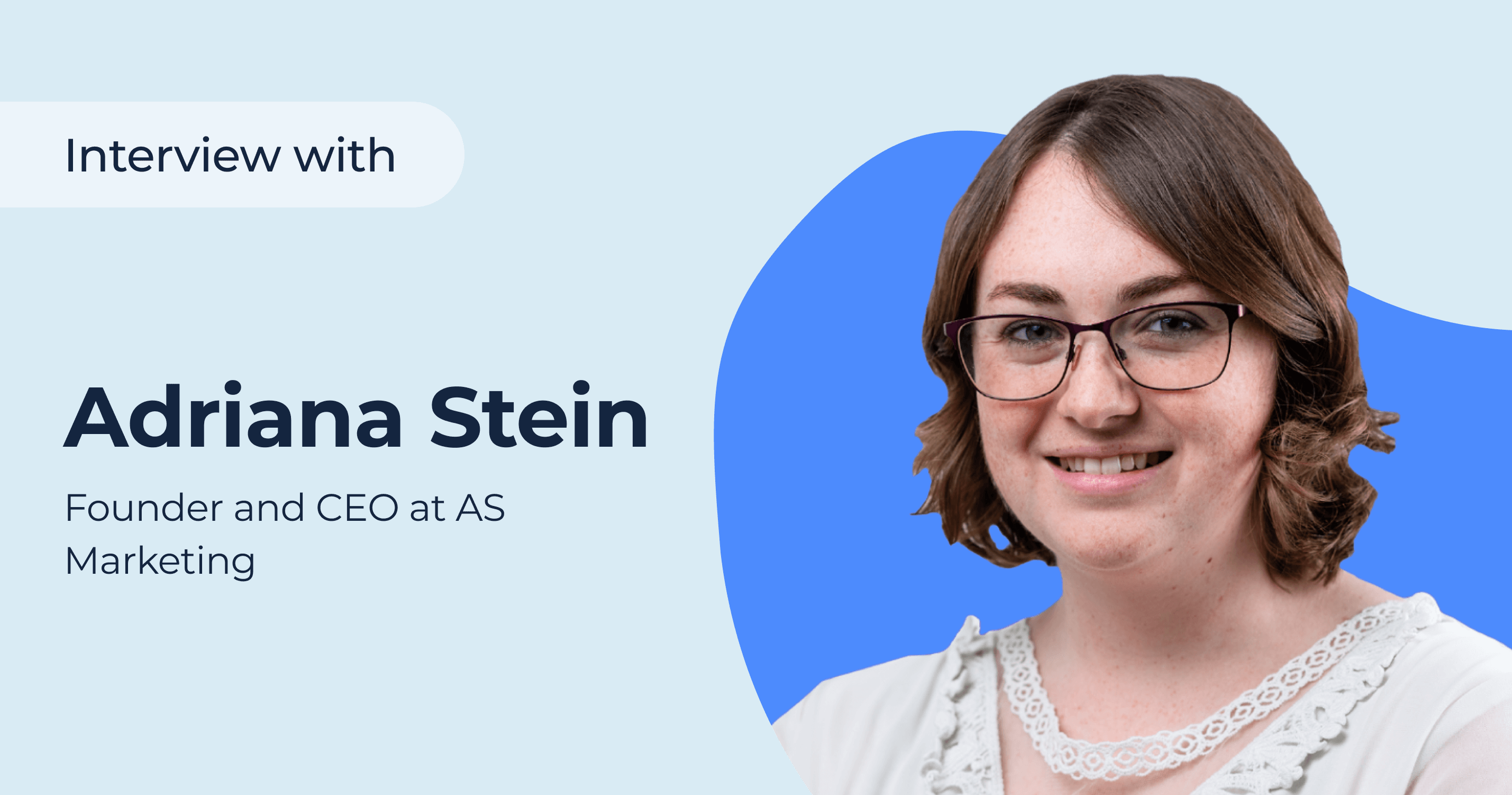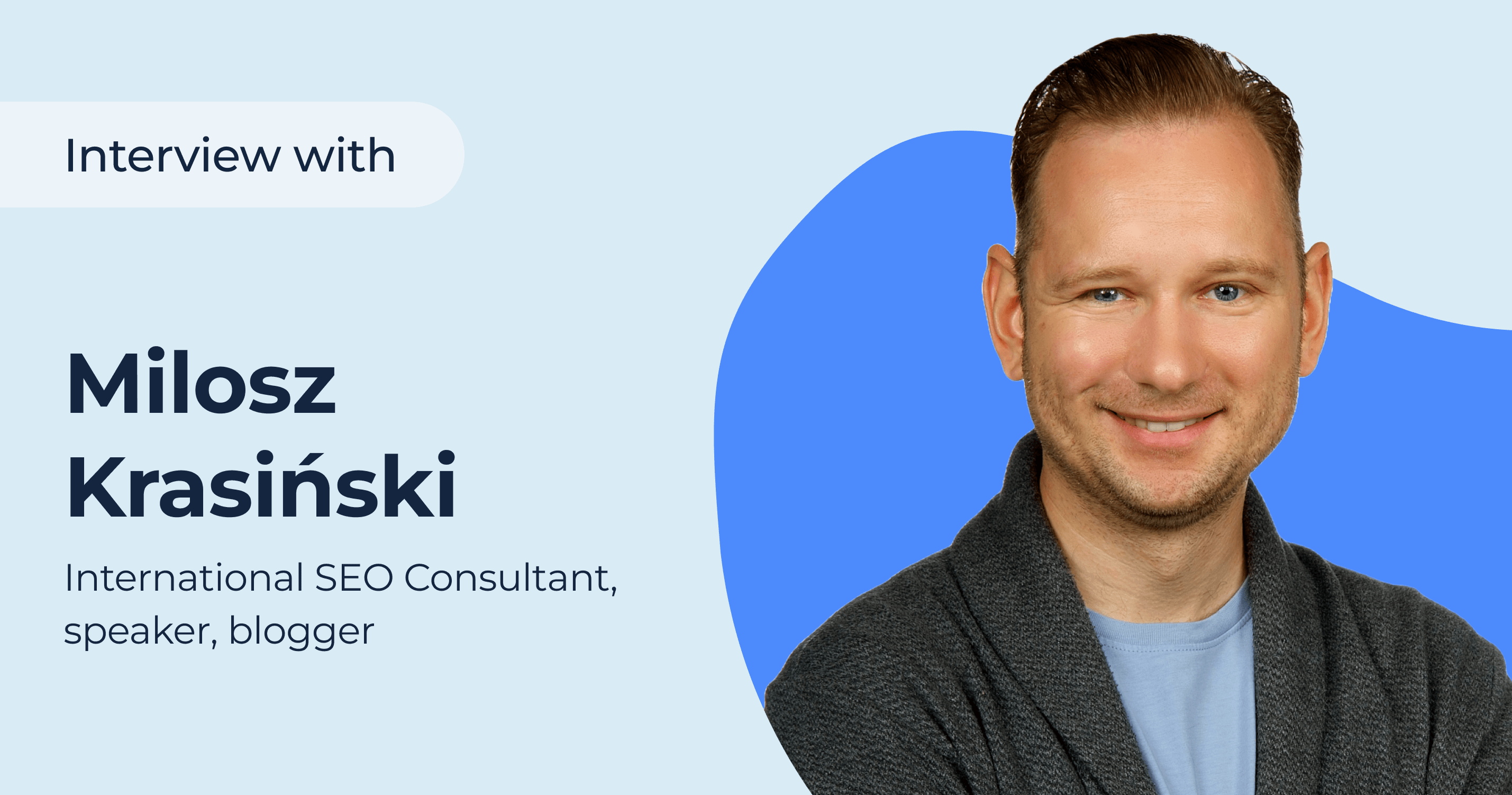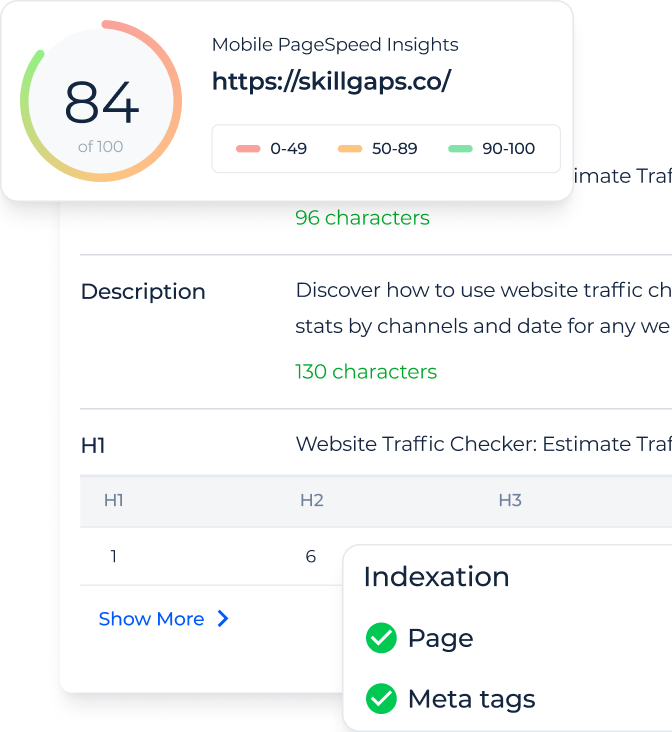We have great news! We continue to find out and tell interesting stories from the life and business of Top SEO experts. This time we interviewed Stephen Kenwright!
Stephen is an SEO Expert, Co-founder/Technical Director at Rise at Seven and co-founder of SearchLeeds.
Stephen shared his valuable SEO experience and story of creating SEO Agency. He also talked about SEO strategies that his agency use in work with clients.
To know more about Stephen Kenwright projects, follow his Website or Twitter page.
So let’s start! Enjoy and get new insights with Sitechecker and Stephen Kenwright:
1. How many years of experience in digital marketing do you have?
I started copywriting freelance for some marketing agencies while I studied for a Masters 10 years ago. One offered me a job when I graduated and I eventually moved over to the digital team and then to a specialist SEO agency.
2. What type of digital marketing you have the strongest skills?
I’ve run PPC, web design and development, UX, content, PR and social for agencies and brands, but SEO is where I’m most comfortable. I’m from a creative background but now I work on the more technical side.
3. What projects are you proud of?
I worked with Realise to replatform 64 English Football League clubs, with only 3 weeks between the first and last migrations and no loss of visibility.
4. What do you do to further your own SEO knowledge and skills?
I still find Twitter extremely useful…I’ve set up RSS feeds straight into Slack for SEO by the Sea, Blind Five Year Old, Google Webmaster Blog and Simo Ahava’s blog….and generally my approach to SEO involves a lot of talking to developers, rather than just telling them what to do.
5. Is there any marketing or SEO blog you like most of all and why?
The examples above, plus I think Builtvisible has the best agency-run blog and DeepCrawl’s roundups. Overall, though, it’s AJ Kohn I find myself agreeing with most often. Everything that man says is true.
6. Who do you consider to be the best experts in SEO and digital marketing?
Jamie Alberico, Barry Adams, Gerry White and my Rise at Seven co-founder Carrie Rose…plus everyone I’ve already mentioned!
I didn’t start building my own websites early on and I’ve learned a lot since I’ve been trying to get things like DNS working myself…even if it’s just empathy for developers, it’s worth it.
Stephen Kenwright, Co-founder/Technical Director at Rise at Seven and co-founder of SearchLeeds
7. What are the TOP-3 errors you made at the beginning of your SEO specialist career?
I didn’t start building my own websites early on and I’ve learned a lot since I’ve been trying to get things like DNS working myself…even if it’s just empathy for developers, it’s worth it.
Despite that…I spent a lot of time trying to learn to code. It’s useful, but it’s so much less useful than a lot of the other skills I’ve picked up. Nobody wants some SEO turning up and telling them how to rebuild their website. I’ve got lots more done since I started focusing on how to explain why.
I accidentally took one of my first clients’ websites out of the index using a badly conceived robots.txt rule. It was fixed the same day, but even so…sorry, Keith!
8. Your blog about SEO and Digital Marketing is among the most popular ones. What is the most powerful thing about your blog’s popularity?
We write for social media, not for SEO. We’re a new agency, so instead of writing monster posts that will rank in 6 months, we write things we know will get talked about on Twitter. We also promote it via Instagram – both organically, we don’t do any paid media.
9. What SEO tactics do you think are underrated?
Looking at Search Console. When I pick up a new client, the biggest issues are usually in there and not in some of the more expensive tools.
Links are the single most important ranking factor. The changes to nofollow are a clear signal that Google needs links to be able to understand what’s popular.
Stephen Kenwright, Co-founder/Technical Director at Rise at Seven and co-founder of SearchLeeds
10. Do you believe that backlinks are Google’s past? Is link building important for increasing the website’s positions nowadays?
Links are the single most important ranking factor. The changes to nofollow are a clear signal that Google needs links to be able to understand what’s popular. The difference between position 1-3 for the most competitive keywords is usually down to technical SEO and content…getting to the top 3 is links.
11. In your opinion, does the technical health of the website affect the ranking positions in search engines?
Yes, it’s important. It can be distracting for a start-up: you can’t get to the top of search engines with a super-fast, technically sound website that has no links or content…but most big brands can make massive headway by fixing their biggest technical SEO issues.
12. We all know about the July update from Google. Some websites rose, some of them fell. What do you think about the new algorithm? What are the main new rankings factors SEO and Marketing specialists should pay attention to? How do you stay up-to-date on the near-constant search algorithm changes?
I keep a spreadsheet of all the clients I have and all the clients I want to work with. It has three columns: links, content and technology. Each column is coded red, amber and green. When an update rolls out, I look at the list and try to work out what the winners and losers have in common. Either way, I don’t let updates affect my strategy, because we know we’re trying to improve all three of those things.
13. In your opinion, does user’s behavior impact on website ranking in SERP?
Yes, I’ve seen lots of instances where that’s the case. The best example I can give: SERPs like “bingo”, where links are potentially dialed down as a signal due to spam, the best CTA usually wins. Usually, but not always, position 1 is occupied by the operator with the best sign-up bonus because they get the most clicks and deposits from organic search.
14. What is your approach to developing an SEO strategy?
Start with what we already know: what market research have we conducted? Who is the audience? What’s in the development queue and what has been done recently? It’s so much easier to get things done in SEO when we can piggyback on what the team is already doing anyway.
15. What services/companies/apps have inspired you the most this year?
Yorkshire Wildlife Park’s Instagram account is one of my favorite things. I especially enjoyed the mongoose soap opera – you can still watch it on their stories.
16. What are the most critical SEO mistakes you have ever seen in other companies?
I’ve already said that I think SEO works best when it’s tied into what the business is already doing – every SEO will be familiar with situations where they’ve been involved too late and there’s just nothing they can do to get value for the business.
17. How do you evaluate web analytics to measure SEO performance?
Reports are always bespoke but are usually built with Google Data Studio. Most include Google Analytics data, rank tracking, SISTRIX visibility charts, and DeepCrawl data. It means everyone has the same view of what’s happening and, because it’s automated, we can see issues quickly.
Start with what we already know: what market research have we conducted? Who is the audience? What’s in the development queue and what has been done recently? It’s so much easier to get things done in SEO when we can piggyback on what the team is already doing anyway.
Stephen Kenwright, Co-founder/Technical Director at Rise at Seven and co-founder of SearchLeeds
18. How do you see the future of SEO (in 5 years)?
The current (worrying) trend is that brands are spending less and less on TV and brand-building, so SEO is going to have to pick up this slack. Link building is getting bigger – more of our campaigns are getting picked up on the TV and radio – and we’re getting more creative in how we get coverage for our brands. I think this is going to continue and accelerate.
19. Which SEO or marketing tools can you recommend as a must-have for every SEO specialist?
SISTRIX is the first thing I open each morning. DeepCrawl is another tool I use every day.
20. What advice can you give for those who are just starting their career in digital marketing?
I’d say start in an agency because you can see how lots of businesses get things done (or don’t); start in-house and you learn one way of doing things but a lot about the business you operate in. Agency life forces you to learn lots of valuable skills and then you can pick your industry later on.
